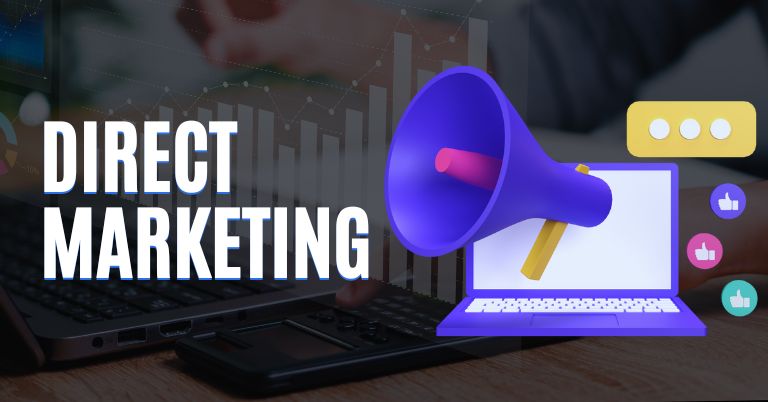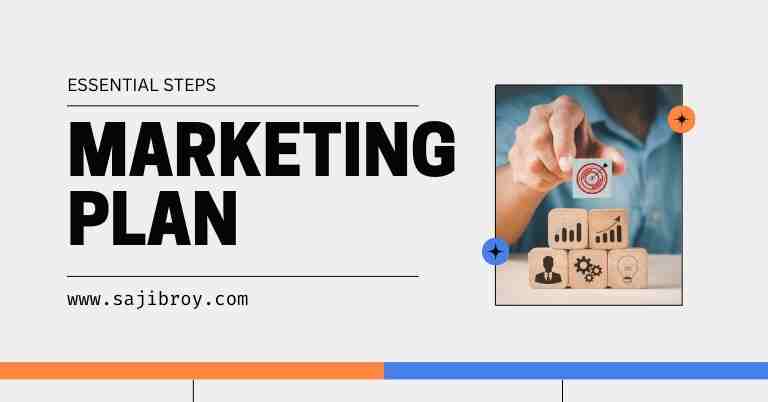In today’s digital age, establishing a strong online presence is crucial for businesses to thrive and succeed. Digital content marketing is one of the best practices of Digital Marketing nowadays! One of the most effective strategies for achieving this is through digital content marketing. But what is digital content marketing? In this comprehensive guide, we will delve into the world of digital content marketing, exploring its definition, benefits, strategies, and more. So, let’s get started and discover how you can leverage the power of digital content marketing to enhance your online visibility, engage your target audience, and drive business growth.
Let's See the Topic Overview
What is Digital Content Marketing?
Digital content marketing refers to the strategic approach of creating and distributing valuable, relevant, and engaging content to attract and retain a clearly defined target audience. It is a multifaceted discipline that involves various forms of digital content, such as blog posts, articles, videos, infographics, social media posts, podcasts, and more. The primary goal of digital content marketing is to establish credibility, build trust, and ultimately drive profitable customer action.
Types of Digital Content Marketing
- Blog Posts: Blogging is one of the most popular forms of digital content marketing. It involves creating and publishing articles on a website’s blog section to provide informative and engaging content to the audience.
- Infographics: Infographics are visually appealing graphics that present complex information in a concise and easily digestible format. They are highly shareable and can convey information effectively.
- Videos: Videos have become increasingly popular in digital content marketing. They offer an immersive and engaging experience, allowing businesses to tell stories, demonstrate products, or provide tutorials.
- Podcasts: Podcasts are audio-based content pieces that can be easily consumed on the go. They allow businesses to share insights, conduct interviews, and connect with their audience through the power of sound.
- Social Media Posts: Social media platforms provide an excellent opportunity for businesses to share bite-sized content, including text, images, and videos, to engage with their audience in real-time.
- Ebooks and Whitepapers: These long-form content pieces offer in-depth information and serve as authoritative resources. They are often used to capture leads by offering valuable content in exchange for contact information.
The Benefits of Digital Content Marketing
Implementing a well-crafted digital content marketing strategy offers numerous benefits for businesses of all sizes and industries. Let’s explore some of the key advantages:
- Enhanced Online Visibility and Brand Awareness: By consistently producing high-quality and valuable content, you can increase your online visibility and attract a larger audience. Sharing your expertise and insights through informative articles, engaging videos, or captivating social media posts can significantly boost brand awareness and establish your business as a thought leader in your industry.
- Increased Website Traffic and Lead Generation: Compelling digital content can act as a magnet, attracting potential customers to your website. When you offer valuable information that resonates with your target audience, you not only drive more traffic but also generate leads. By strategically placing call-to-action elements within your content, such as newsletter sign-ups or gated content, you can capture valuable contact information and nurture leads through the buyer’s journey.
- Improved Search Engine Rankings: Search engines, like Google, love fresh and relevant content. By consistently publishing new and valuable digital content, you can improve your website’s search engine rankings. Optimizing your content with relevant keywords and providing comprehensive answers to users’ queries increases the chances of your content appearing in search engine results pages (SERPs), driving organic traffic to your website.
- Increased Social Media Engagement and Follower Growth: Engaging content is highly shareable, and social media platforms provide an ideal environment for content distribution. By crafting compelling content that resonates with your target audience, you can encourage social media users to engage with, like, comment on, and share your posts. This increased engagement not only boosts your brand’s visibility but also helps grow your social media following, creating a loyal community of brand advocates.
- Strengthened Customer Relationships and Brand Loyalty: Digital content marketing allows you to connect with your audience on a deeper level. By providing valuable and relevant content that addresses their pain points, challenges, or aspirations, you can establish trust and credibility. Over time, this builds strong customer relationships, fosters brand loyalty, and positions your business as a go-to resource for your target audience.
Strategies for Effective Digital Content Marketing
Now that we understand the benefits of digital content marketing, let’s explore some effective strategies to maximize your efforts and achieve remarkable results:
- Define Your Target Audience and Goals: Before diving into content creation, it’s essential to identify your target audience and define your goals. Understanding your audience’s demographics, interests, pain points, and preferences will help you tailor your content to meet their needs effectively. Additionally, clearly defining your goals, whether they are increasing website traffic, generating leads, or improving brand awareness, will guide your content strategy and enable you to measure success.
- Conduct Thorough Keyword Research: Keyword research is the backbone of successful digital content marketing. By identifying the keywords and phrases your target audience uses to search for information related to your industry, you can optimize your content for better search engine visibility. Tools like Google Keyword Planner, SEMrush, and Moz Keyword Explorer can help you uncover valuable keyword opportunities and gain insights into search volume, competition, and user intent.
- Create Engaging and Valuable Content: The key to successful digital content marketing lies in crafting engaging and valuable content that resonates with your audience. Whether it’s a blog post, video, or infographic, focus on delivering information that educates, entertains, or solves a problem for your target audience. Incorporate storytelling techniques, use relatable examples, and add visual elements to make your content more compelling and shareable.
- Leverage Different Content Formats: Digital content comes in various formats, and diversifying your content strategy can help you reach a broader audience. Experiment with different formats such as videos, podcasts, webinars, e-books, or interactive quizzes to cater to different learning preferences and consumption habits. Additionally, repurpose your existing content into different formats to maximize its reach and impact.
- Optimize Content for SEO: To ensure your digital content reaches the right audience, it’s crucial to optimize it for search engines. Incorporate relevant keywords naturally throughout your content, including in the title, headings, meta descriptions, and alt tags for images. Use descriptive and engaging meta descriptions to entice users to click on your content in the search results. Additionally, build internal and external links to authoritative sources to enhance the credibility of your content.
- Promote Your Content on Multiple Channels: Creating great content is only the first step; promoting it effectively is equally important. Utilize various distribution channels such as social media platforms, email newsletters, guest blogging, influencer partnerships, and online communities to amplify the reach of your content. Tailor your promotional strategies to each platform and engage with your audience through meaningful conversations and interactions.
Creating a Digital Content Marketing Strategy
To create an effective digital content marketing strategy, businesses should consider the following steps:
- Defining Objectives: Clearly define the goals and objectives of the content marketing efforts, such as brand awareness, lead generation, or customer retention.
- Understanding the Target Audience: Conduct thorough research to understand the needs, preferences, and pain points of the target audience.
- Developing a Content Plan: Create a content plan that aligns with the target audience’s interests, addresses their pain points, and maps to the overall business objectives.
- Creating and Distributing Content: Develop high-quality content that is tailored to the target audience and distribute it through various channels such as websites, social media platforms, and email newsletters.
- Measuring and Analyzing Results: Monitor the performance of the content marketing efforts using relevant metrics and make data-driven adjustments to optimize future content creation and distribution.
Best Practices for Digital Content Marketing
To maximize the effectiveness of digital content marketing, consider the following best practices:
- Understanding the Audience: Gain deep insights into the target audience’s demographics, preferences, and behaviors to create content that resonates with them.
- Consistency: Publish content regularly and maintain a consistent tone and style to establish brand identity and reliability.
- SEO Optimization: Optimize content for search engines by incorporating relevant keywords, meta tags, and descriptions to improve organic visibility.
- Engaging Visuals: Incorporate eye-catching visuals such as images, videos, and infographics to enhance the visual appeal and engagement of the content.
- Promotion and Distribution: Actively promote content through various channels, including social media platforms, email newsletters, and collaborations with influencers.
Measuring the Success of Digital Content Marketing
To measure the success of digital content marketing efforts, businesses can utilize various metrics, including:
- Website Traffic: Monitor the increase in website traffic resulting from content marketing activities.
- Engagement Metrics: Track metrics such as social media likes, shares, comments, and website dwell time to assess audience engagement.
- Conversion Rates: Measure the number of leads or conversions generated through content marketing campaigns.
- Brand Mentions and Backlinks: Monitor the number of times the brand or content is mentioned or linked to by other websites, indicating its authority and influence.
Common Challenges in Digital Content Marketing
- Content Creation: Consistently producing high-quality content can be challenging due to resource limitations or a lack of creative ideas.
- Audience Engagement: Gaining and maintaining audience engagement requires continuous effort and experimentation with different content formats and distribution channels.
- Measuring ROI: Determining the return on investment (ROI) of content marketing activities can be complex, as it involves attributing conversions to specific content pieces.
- Staying Updated: Keeping up with evolving digital trends, algorithms, and platform changes is crucial to ensure content remains relevant and effective.
- Competition: The digital landscape is highly competitive, making it essential to differentiate content and provide unique value to the audience.
Example of Digital Content Marketing
Digital content marketing aims to build brand awareness, establish thought leadership, foster customer relationships, and drive profitable customer action. To better understand digital content marketing, let’s explore an example.
Example: A Travel Agency
Imagine you own a travel agency that specializes in organizing adventure trips and experiences. To effectively implement digital content marketing, you can leverage various content strategies to engage with your target audience, inspire their travel aspirations, and drive bookings.
Step 1: Understanding the Target Audience
Start by understanding your target audience—adventure enthusiasts, thrill-seekers, and travel lovers. Conduct market research, analyze their preferences, interests, and pain points related to adventure travel. Understand what destinations, activities, and experiences they seek.
Step 2: Creating Compelling Content
Create content that resonates with your audience and showcases the unique experiences you offer. Here are some content ideas:
- Travel Guides: Craft detailed travel guides for popular adventure destinations, providing insights into the best activities, accommodations, and local attractions. For instance, create a guide titled “Ultimate Guide to Trekking in the Himalayas.”
- Destination Highlight Videos: Produce captivating videos showcasing the breathtaking landscapes, adrenaline-pumping activities, and cultural experiences offered in different adventure destinations. Create videos such as “Exploring the Amazon Rainforest: A Thrilling Adventure.”
- Customer Stories: Share inspiring stories of past customers who embarked on your adventure trips. Feature their experiences, photos, and testimonials. For example, write a blog post titled “Journey of a Lifetime: How Jane Conquered Kilimanjaro.”
- Social Media Campaigns: Utilize platforms like Instagram, Facebook, and Twitter to share stunning visuals of adventure destinations, pose questions to spark engagement, and encourage user-generated content.
Step 3: Distribution and Promotion
Distribute your content across various digital platforms to reach a wider audience. Publish your travel guides on your website’s blog section, optimize them with relevant keywords, and promote them through social media posts and email newsletters. Share your destination highlight videos on video-sharing platforms like YouTube and Vimeo, embed them on your website, and promote them on social media. Encourage customers to share their stories and experiences on social media platforms using your branded hashtags.
Step 4: Engaging with the Audience
Engage with your audience by responding to comments, inquiries, and messages. Encourage discussions, answer travel-related questions, and provide helpful information. This fosters a sense of community and establishes your agency as a reliable source of adventure travel expertise.
Step 5: Tracking and Iterating
Measure the success of your digital content marketing efforts by tracking metrics such as website traffic, social media engagement, content shares, and booking conversions. Analyze the data to understand which content resonates most with your audience, which distribution channels are most effective, and what drives bookings. Use these insights to refine your content strategy, experiment with new approaches, and continuously improve your digital content marketing efforts.
By implementing a comprehensive digital content marketing strategy, your travel agency can capture the attention of adventure seekers, inspire them to explore new destinations, and ultimately drive bookings and revenue.
Conclusion
Digital content marketing is a powerful strategy that enables businesses to connect with their target audience, build brand credibility, and drive growth. By creating and distributing valuable and engaging content across various digital platforms, businesses can establish thought leadership, increase brand visibility, and generate qualified leads. However, it is important to continually measure performance, adapt to audience preferences, and overcome common challenges to ensure success in the ever-evolving digital landscape.
FAQs
How long does it take to see results from digital content marketing?
The timeline for seeing results can vary depending on various factors, including the industry, target audience, and competition. Generally, businesses can start seeing initial results within a few months, but it may take longer to achieve significant and sustainable outcomes.
Is digital content marketing suitable for all businesses?
Yes, digital content marketing can benefit businesses across industries and sizes. However, the content strategy and tactics may vary based on the specific goals, target audience, and resources available for content creation and distribution.
How often should businesses publish new content?
The frequency of content publication depends on the audience’s preferences, available resources, and the desired level of engagement. It is recommended to maintain a consistent publishing schedule, whether it’s daily, weekly, or monthly, to keep the audience engaged and establish brand reliability.
Can digital content marketing help improve search engine rankings?
Yes, digital content marketing can contribute to improving search engine rankings. By creating high-quality, SEO-optimized content, businesses can increase their chances of ranking higher in search engine results pages (SERPs) and attracting organic traffic to their websites.
Is it necessary to hire a professional content writer for digital content marketing?
While hiring a professional content writer can bring expertise and efficiency to content creation, it is not always necessary. Businesses can also create compelling content in-house by leveraging the knowledge and expertise of their team members. The key is to ensure that the content is valuable, relevant, and well-crafted to resonate with the target audience.












